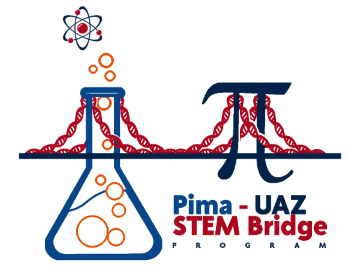A community of practice: Supporting low-income transfer in STEM
Author: Emily Halvorson-Otts
This article examines a successful partnership between Pima Community College (PCC) and the University of Arizona (UAZ) designed to increase STEM transfer rates among low-income, underrepresented students. The partnership addresses a significant gap in STEM degree attainment, particularly among community college students, where only 14% earn STEM bachelor's degrees despite 75% initially intending to do so. Through an NSF S-STEM grant-funded program called the Pima-UAZ STEM Bridge, the institutions implemented a Culturally-Responsive Community of Practice (CRCP) focused on faculty mentorship. The program provided approximately $6,000 in scholarships to Pell-eligible STEM students across three cohorts, with high representation of racial/ethnic minorities (54%), first-generation students (64%), and gender-underrepresented individuals (44%). Key interventions included culturally responsive training for faculty mentors and building student community. Results show that 98% of participants successfully transferred to UAZ, with 95% persisting in STEM fields. Student feedback indicates that faculty mentorship significantly enhanced their sense of belonging in STEM, with more than 85% reporting increased confidence and feelings of belonging across all cohorts. This model demonstrates promising strategies for improving STEM transfer pathways for underrepresented students at Hispanic-Serving Institutions.
Exploring How Culture Matters in Building Responsive and Humanizing Contexts for Community College Students Pursuing STEM
Authors: Brenda Lee Anderson and Regina Deil-Amen
While the vertical transfer process and culturally responsive approaches to education have been studied extensively, few scholars have addressed these two areas of concern simultaneously, particularly within higher education contexts. This study explores what cultural responsiveness means and how it matters for low-income community college (CC) students aspiring toward STEM careers and transferring to STEM majors at a local university. As part of a bridge program, students received two STEM faculty mentors, one faculty mentor from the community college and the other from the local university, beginning in their last year of enrollment at the community college. Each STEM mentor was trained in culturally responsive mentoring, and their mentorship extended post-transfer. Students participated in focus groups to share their experiences. The findings reveal that specific aspects of the community college students’ identities, primarily their race and language, were relevant as aspects of culture that mattered for their STEM aspirations. The findings also show that cultural responsiveness in mentoring and support outside the classroom are important steps toward humanizing STEM spaces, but they are wholly insufficient when not paired with extensive culturally responsive efforts in STEM teaching and within the curriculum to improve the internal classroom climate for those with racialized identities.
“That Was the Biggest Help”: The Importance of Familiar Support for Science, Technology, Engineering, and Math Community College Students.
Authors: Elia H. Bueno, Selena M. Velasquez, Regina Deil-Amen, Candace Jones
This study reveals the informal instrumental and socio-emotional support that non-traditional (e.g., Latinx, Black, Indigenous, and first-generation), low-income community college students pursuing STEM majors receive from family members that combat experiences of marginalization and contribute toward their self-efficacy. Family support can be particularly important for underrepresented undergraduate Science, Technology, Engineering, and Math (STEM) students who are at higher risks of dropping out of their program and experience lower levels of success indicators (e.g., sense of belonging, self-concept, and STEM identity) compared to their white and Asian peers. Utilizing a phenomenological approach, we used open-ended questions during focus groups with community college transfer students to gain their experiences with challenges and feelings of belonging in college and STEM. We apply the funds of knowledge framework to investigate the value family support holds for students in navigating STEM challenges and expand the definition of family to include romantic partners and extended family.

